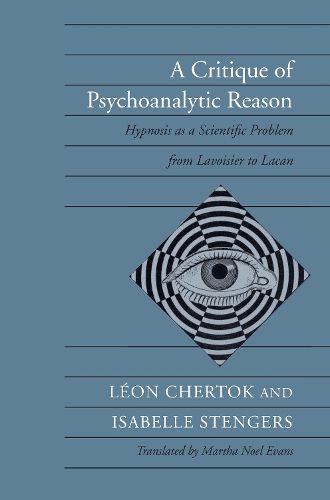Readings Newsletter
Become a Readings Member to make your shopping experience even easier.
Sign in or sign up for free!
You’re not far away from qualifying for FREE standard shipping within Australia
You’ve qualified for FREE standard shipping within Australia
The cart is loading…






This original and provocative work begins by examining the shift of scientific paradigms that took place in the late eighteenth century, a shift illustrated by the report of a French Royal Commission appointed in 1784 to investigate Mesmerism. The reactions to Mesmerism among the Commission members - in particular the chemist Lavoisier and the botanist Jussieu - crystallized conflicts about the notion of reason and its role as a scientific ideal, about how science ought to be done. The Commission’s denunciation of Mesmerism as the work of the ‘immigration’ then serves as the starting point for the authors’ reconsideration of the history of psychoanalysis, notably its suppression and repression of phenomena associated with hypnosis - imagination, suggestion, and empathy - in its search to establish itself as a science in accord with the new ideal of scientific reason. Examining the new and often troubled relationship in psychoanalysis between therapeutic effectiveness and advances in theory, the authors highlight the challenge to Freudian ideals in the 1920’s by Otto Rank and Sandor Ferenczi. The discrediting of Ferenczi - engineered to a large extent by Ernest Jones and Freud himself - was an attempt to ‘purify’ psychoanalysis of the effects of suggestion. The authors discuss Freud’s own therapeutic nihilism occasioned by his recognition that suggestion, by means of the transference relationship, played an uncontrollable role in psychoanalytic therapy. In assessing Freud’s legacy, the authors examine evolving notions of psychoanalysis, especially the role played by the effects of suggestion in recent theoretical representations of the development of the subject. Asserting that hypnosis and the challenge it poses to our understanding of human motivation, reason, and the mind/body relationship constitute the fourth narcissistic wound to the human ego (after those introduced by Copernicus, Darwin, and Freud), the authors analyze Lacan’s rejection of hypothesis and explain current resistance to hypnosis through its challenge to the modern scientific notion of reason.<
$9.00 standard shipping within Australia
FREE standard shipping within Australia for orders over $100.00
Express & International shipping calculated at checkout
This original and provocative work begins by examining the shift of scientific paradigms that took place in the late eighteenth century, a shift illustrated by the report of a French Royal Commission appointed in 1784 to investigate Mesmerism. The reactions to Mesmerism among the Commission members - in particular the chemist Lavoisier and the botanist Jussieu - crystallized conflicts about the notion of reason and its role as a scientific ideal, about how science ought to be done. The Commission’s denunciation of Mesmerism as the work of the ‘immigration’ then serves as the starting point for the authors’ reconsideration of the history of psychoanalysis, notably its suppression and repression of phenomena associated with hypnosis - imagination, suggestion, and empathy - in its search to establish itself as a science in accord with the new ideal of scientific reason. Examining the new and often troubled relationship in psychoanalysis between therapeutic effectiveness and advances in theory, the authors highlight the challenge to Freudian ideals in the 1920’s by Otto Rank and Sandor Ferenczi. The discrediting of Ferenczi - engineered to a large extent by Ernest Jones and Freud himself - was an attempt to ‘purify’ psychoanalysis of the effects of suggestion. The authors discuss Freud’s own therapeutic nihilism occasioned by his recognition that suggestion, by means of the transference relationship, played an uncontrollable role in psychoanalytic therapy. In assessing Freud’s legacy, the authors examine evolving notions of psychoanalysis, especially the role played by the effects of suggestion in recent theoretical representations of the development of the subject. Asserting that hypnosis and the challenge it poses to our understanding of human motivation, reason, and the mind/body relationship constitute the fourth narcissistic wound to the human ego (after those introduced by Copernicus, Darwin, and Freud), the authors analyze Lacan’s rejection of hypothesis and explain current resistance to hypnosis through its challenge to the modern scientific notion of reason.<